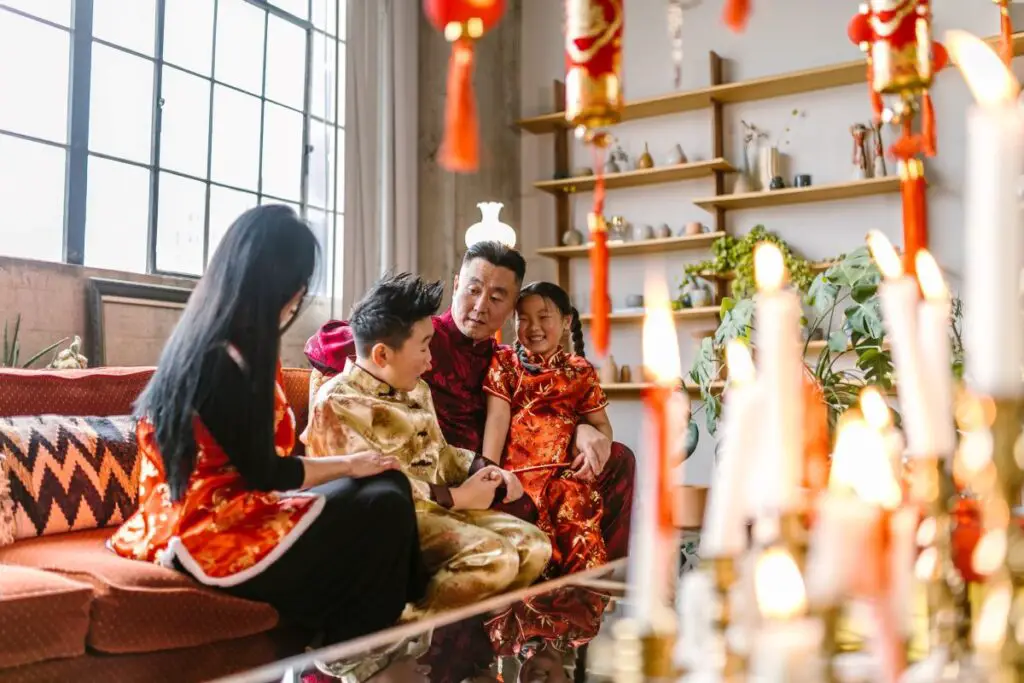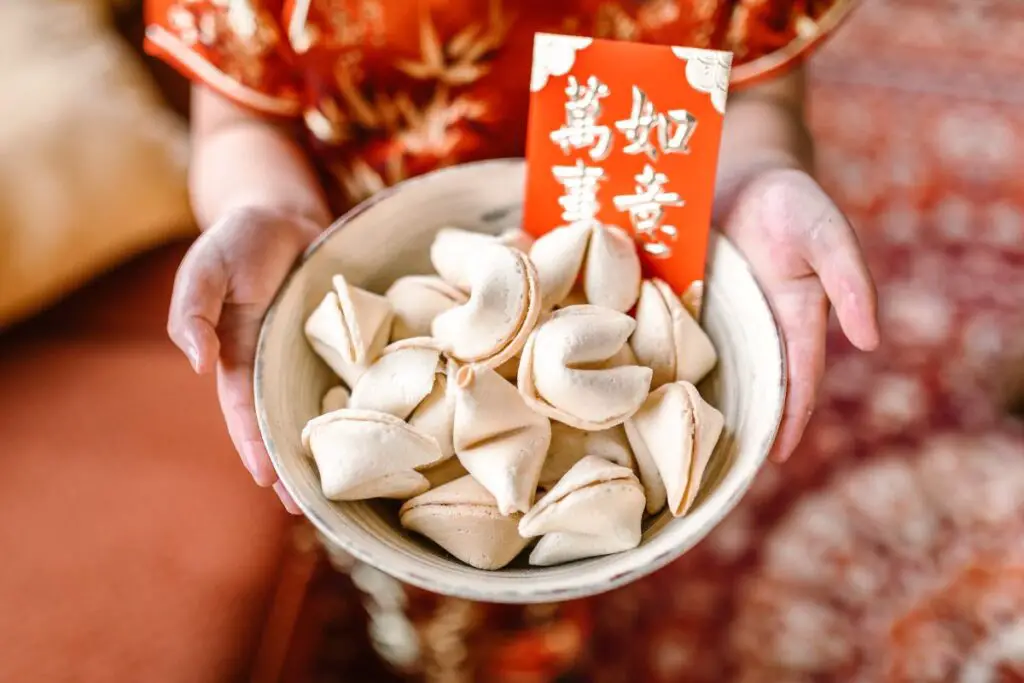Chinese New Year 2026 is Here: Celebrate Growth and Wisdom
Chinese New Year is one of the biggest and most anticipated festivals celebrated by Chinese communities around the world. Also known as Lunar New Year or Spring Festival, it represents a time of renewed hope and new beginnings as families gather to welcome the Chinese New Year 2026 according to the traditional lunar calendar.
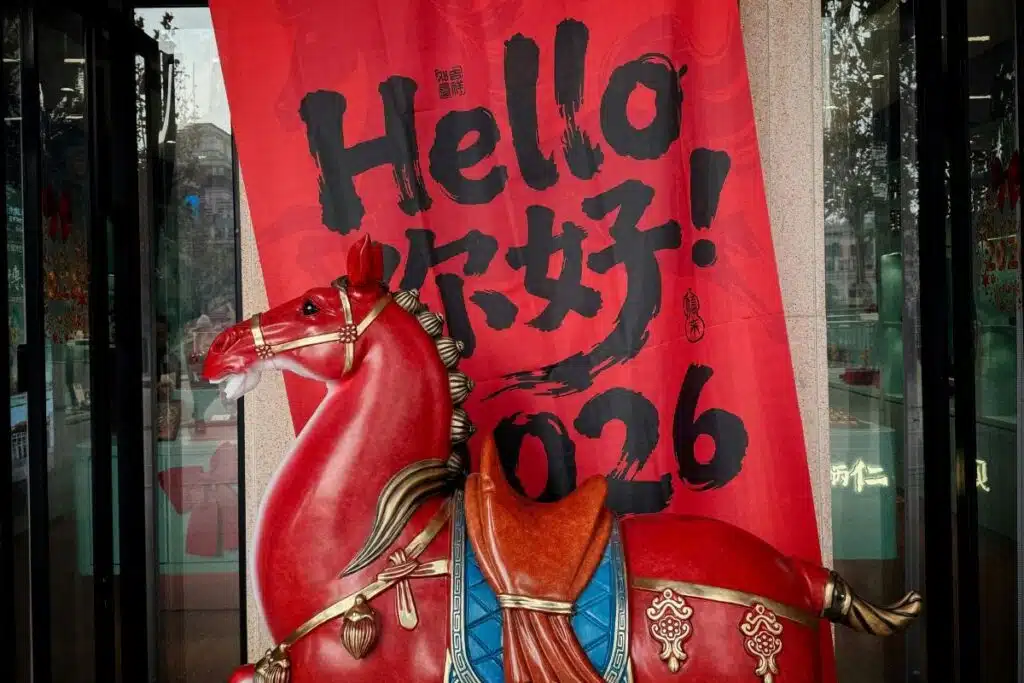
This year’s animal sign is the Fire Horse, which is linked to passion, freedom, and transformation. The Year of the Horse is often characterized as an invitation to “awaken”.
The year combines the untamed, free spirit of the horse with the transformative force of fire, creating a dynamic energy calling for the igniting of creativity, courage, and life free from limitations.
It’s especially interesting to note the the Year of the Fire Horse starts and ends with a “ring of fire” annular solar eclipse! This eclipse is in Antarctica in 2026 and in South America and West Africa in 2027. It is truly a global affair.
The moon cycle determines the dates of the Chinese Lunar New Year, and begins with the New Moon.
While the holiday is celebrated wherever there is a significant Chinese population, many individuals not of Chinese descent still celebrate as another way to welcome in a new year and celebrate.
However, with its explosions of firecrackers, boisterous dances accompanied by loud drumming, crowded parades, noisy family gatherings, and an abundance of red and gold decorations and the exchange of red envelopes known as hongbao, and giving of blessings for the year ahead, Chinese New Year 2026 can be an overwhelming sensory experience for people with autism.
Luckily, with some advance planning, flexibility and simple adjustments, individuals with neurodiversity and sensitivities to noise, lights, and crowds, can still enjoy the celebrations and rich cultural traditions of this important holiday.
Read more about Heartwarming Ways of Respecting Others’ Religious Holidays and Traditions
Prepare For Changes in Routine Before Celebrating Chinese New Year 2026
For many people with autism, transitions and unexpected changes in their daily routines can heighten anxiety and stress levels.
Leading up to Chinese New Year 2026, take time to explain what activities will be involved and what shifts to regular schedules will occur over the multi-day festival period. The 16th day of the lunar calendar is culminated with the Lantern Festival on March 3, the date of the “Worm Moon”. In addition, it will also be a “Blood Moon” total lunar eclipse.
Go over the planned events, meals, outings and any deviations from typical routines. Mark dates and times on a calendar or create a printed photo schedule detailing celebrations at home, visiting family or attending community events.
Visual supports like these can help ease the transition and set expectations for the coming disruptions to normalcy.
In addition to changes in activities, Chinese New Year also brings alterations to diet. Traditional celebratory foods like fish, dumplings, greens, noodles and glutinous rice cakes take center stage over familiar everyday meals. The increase in rich, fried foods and sweets can upset digestive systems too.
Preview sample menus, explain specialty dishes and prepare gastrointestinal systems for shifts to accommodate cultural cuisine. Stock up on regular food staples or safe snacks in case backup is needed. Being aware and ready for deviations can prevent anxiety over unfamiliar foods.
Read more about Food for Picky Eaters: 17 Holiday Hacks to Know.
Keep Sensory Needs Front and Center When Celebrating
Chinese New Year festivities are typically full of noise and lights. Crowded parades full of musicians, dancers and ornamental costumes provide colorful visual stimulation and are often combined with fireworks and firecrackers.
Add to that noisy family banquets, ubiquitous red and gold decorations and omnipresent Chinese pop music and the combination can easily overload the senses.
When possible, build in scheduled breaks from stimulating environments by having quiet spaces or rooms available to unwind and recharge.
Noise-canceling headphones, earplugs, sunglasses and soft clothing can also help manage sensitivity issues if they arise.
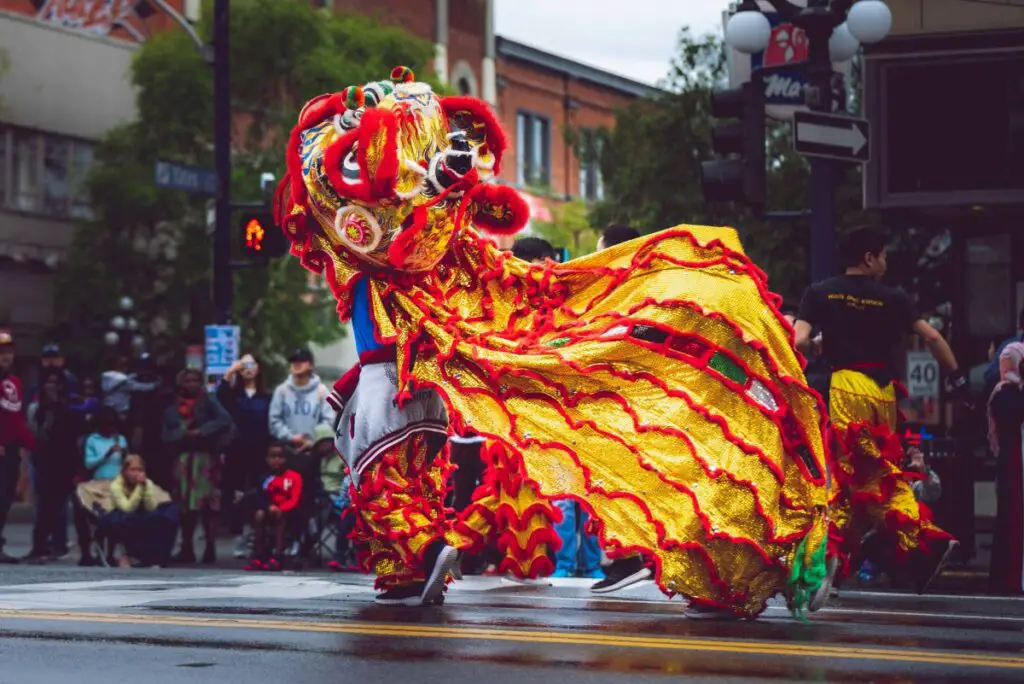
Focus on enjoying the two or three Chinese New Year 2026 experiences most appealing rather than trying to join everything extended family and friends want to do.
Setting these boundaries ahead of time gives a graceful exit strategy if needed.
Read more 6 Ways to Tackle Fireworks Anxiety and Sensory Overload.
Get Creative Integrating Special Interests With Children
Incorporating special interests and passions into Chinese New Year preparations and celebrations can help motivate participation and help children (neurodiverse or neurotypical) engage their natural inclinations.
For example, children obsessed with horses could make their own puppets, masks or costumes to wear, incorporating knowledge of their beloved creatures into the holiday. For young chefs or foodies, cook favorite Chinese dishes together or try preparing traditional foods like dumplings, noodles and glutinous rice cakes.
If they love music, play Chinese New Year songs and watch dance performances together. Videos explaining lunar new year history and traditions aligned with their interests also make learning engaging.
Most children (and the curious of any age) would like learning about how the Chinese calendar works. The Chinese Zodiac is called Sheng Xiao, has a 12-year cycle, each with an animal sign. In addition, there are also five elements used in turn (wood, fire, earth, gold (metal), and water, which together create a 60-year cycle.
Finding ways to integrate their special interests provides opportunities for them to connect with the holiday in their own way.
Read More About Knocking Down the Stigma to Autism Obsession
Practice Key Social Skills Before Participating in Festivities
Because Chinese New Year 2026 (and every year) revolves around gatherings with family and community, it presents opportunities to practice social skills from greetings to conversing appropriately.
Have children and adults alike rehearse saying common Chinese New Year wishes like “Xin Nian Kuai Le” (Happy New Year, pronounced “Sheen Nien Kwhy Luh”) or “Gong Hei Fat Choy” (Wishing You Prosperity and Wealth).
Role playing scenarios like receiving red envelopes from elders, eating customary dishes with chopsticks or joining in holiday chants can build confidence to apply when the actual moment arrives.
For individuals on the spectrum who struggle with conversations, provide cue cards with appropriate topics and sample questions to reduce stress. Schedule breaks during longer gatherings if needed.
Let close relatives know strategies for clear communication such as speaking literally, avoiding figures of speech and allowing extra processing time. With a little preparation, social interactions during Chinese New Year can become more comfortable.
Read more about Survival Guide to Mingling with Family Extended Members
Start New Family Traditions for Chinese New Year 2026
Consider creating your own unique Chinese New Year customs that fit with your family’s comfort levels and needs.
7 ideas include:
- Having a private at-home dumpling-making session on New Year’s Eve
- Collaborating on crafts to decorate your home with red lanterns and banners
- Exchanging red envelopes with money for children in the family
- Preparing a meal together of favorite Chinese dishes
- Watching a video about Lunar New Year history and mythology
- Attending a public fireworks show instead of lighting home firecrackers
- Participating in just a portion of a crowded parade or festival
The beauty of cultural celebrations is that they can be molded to find what works for each family’s situation. You may feel happier starting private Chinese New Year traditions in a controlled environment first, then slowly adding in pieces of larger public events.
As an option, alternate bigger gatherings with quiet times at home. Adapt activities based on comfort levels to create holiday moments to remember.
Pick and Choose Events for Chinese New Year 2026
Chinese New Year dates are celebrated over a 16-day period, with different traditions and activities on each day.
It’s completely understandable to not participate in every single event. Based on your family’s preferences, energy levels and sensory needs, select a few highlights to mark the holiday.
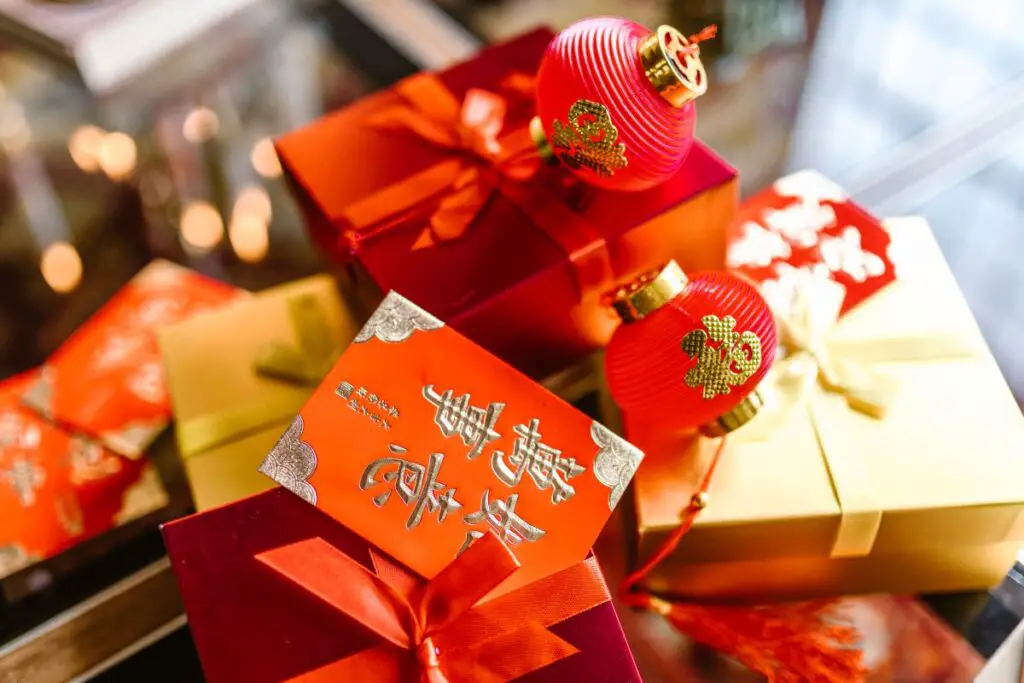
If you are not of Chinese heritage, but enjoy celebrating the customs of a Chinese New Year, look for key events to sample the flavor of the celebrations but without becoming overwhelmed by the two weeks of festivities.
Read More About Ways to Keep From Feeling Overwhelmed During the Holidays
Find Local Accessibility Resources
In regions with large Chinese populations, some organizations aim to make Lunar New Year celebrations more inclusive. Search online or reach out to cultural groups to see if there are any accommodated events in your area.
For example, some parades block off quiet zones, offer headphones or distribute sensory bags. Inquire with temples if they host sensory-friendly fairs. Finding more accessible ways to engage can allow children to feel part of the cultural festivities.
Here are 3 additional tips to consider when celebrating Chinese New Year 2026.
- Leverage Technology
Smartphones, tablets and computers offer ways to interact with Chinese New Year 2026 in comfortable, controlled settings. Watch videos of the mythology behind the 12 zodiac animals with friends and family. Take virtual tours of beautiful temple decorations. Play games that teach about traditional foods, customs and greetings. Video chat with relatives who live farther away to feel connected.Technology provides engaging, educational opportunities to experience cultural heritage while avoiding sensory overload.
- Acknowledge Emotions
The combination of routine disruptions, activity changes, and sensory stimulation can understandably evoke strong emotions during Chinese New Year. Make extra time for bonding, validation and reassurance. Keep photo schedules and visual supports available for reference.Have calming tools on hand like fidget spinners or noise-canceling headphones. Offer hugs, encouragement and praise for trying new things. Be patient as family members adjust to holiday challenges. Recognizing feelings provides needed comfort and support.
- Coordinate Outfits
Many families wear red clothing and accessories during Chinese New Year for good fortune. Collaborate as a family to create fun coordinated lion dance or dragon costumes. Or pick matching red shirts or hair accessories to wear when celebrating together.This shows communal spirit while allowing individuals to choose comfortable attire that suits their needs. Add sensory adaptations like seamless socks, soft fabrics or stretchy clothes to prevent irritation. Coordinate in a way that enables participation while maintaining well-being.
The resilient traditions of Chinese New Year have lasted for thousands of years, bringing families together even through periods of hardship and separation. Everyone deserves to feel part of this heritage.
With compassion, flexibility and creativity, people with autism can take part in ways that are engaging, meaningful and fun. This creates lasting memories of a culture-connecting celebration to cherish.
Focus on Fun and Needs During Chinese New Year 2026 Festivities
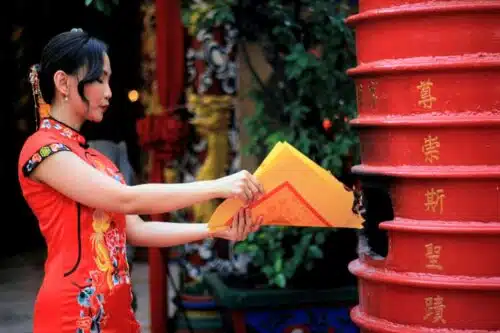
While its lavish sights and sounds can pose challenges for people with autism, some thoughtful preparation and flexibility can open the door for everyone to enjoy its spirit.
Remember to:
- Prioritize needs during potentially overwhelming experiences
- Structure schedules and sensory input
- Incorporate special interests to inspire engagement
Practice social skills and conversations - Try new traditions that fit your family’s comfort levels
The richness of Chinese culture comes alive through the colorful celebrations of Lunar New Year. By honoring individual needs and focusing on fun, people with autism can find meaningful ways to participate in important cultural traditions.
Celebrating Chinese New Year 2026 can become a holiday of happiness, understanding and acceptance for the entire family, regardless of whether you are Chinese or want to embrace the customs of bringing in a prosperous new year to all. And, if you’re wanting to look ahead, 2027 will be the Year of the Goat.
If you enjoyed this article, here are additional seasonal celebration tips you might enjoy.
Other holiday stories by My Autism Mind:
- Holiday Survival Guide to Mingling with Family Extended Members
- Crowds Phobia and Autism: How to Tame Anxiety Overload
- Autism and Holidays: Why Special Occasions Can Be Challenging
- How to Nail New Year Goals When You Have Autism
- Autism Family Support: 5 Ways For A Happy Household
- Autism Volunteer Opportunities: 5 Ways Helping Others Fosters Acceptance
